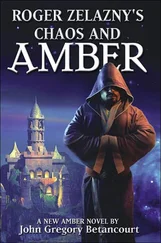Then she would have us stand at attention and she would peer at us while we were ordered to smile and show our teeth. I have no idea why she would stare at our teeth. When I was young, I thought it was to make sure we were brushing. But she stared and never said anything whether we brushed or did not.
Then she would ask, “Any moles or skin discolorations today? Aches? Pains? Strains? Strange dreams?”
Vanity would usually answer back: “I’ve got freckles! Does that count?”
Mrs. Wren never seemed disturbed by back talk. She had a melancholy face, and eyes that always seemed to be staring somewhere else. There was no sign of gray in her hair, no wrinkles on her skin, and yet she never stood fully erect, and walked with a stoop-shouldered shuffle, as if weights were on her shoulders. Her hair was a mouse-colored bun, with wisps and unruly curls always escaping it; her eyes were half-hidden behind coke-bottle-glass spectacles. She always wore the same gray sweater, which had as many loose threads and escaping wisps as her hair.
“Well, duckies,” she would answer, “don’t fret about a few spots. I am sure, in time, you will appear as howsoever fair or foul you wish to appear. In time, in time. All chickens come home to roost in time.”
And she would sigh.
Then she’d say: “Hold out your pretty fingers for the needle, my chicks, ’twill only prick a slight prick.”
She would take a small blood sample from a forefinger or an elbow, and spend (what always seemed to me) several minutes fumbling with the self-adhesive label, onto which she had written the date in her wandering hand. No matter how long she muttered and fretted (and it always seemed long to me) the labels always went onto the little plastic sample bottles crookedly, or wrinkled, or with their sticky sides stuck to each other.
Finally we could don our nightgowns.
When we were younger, Mrs. Wren would watch us carefully while we took the little cup of medicine Dr. Fell left each night on our nightstands. And she would stand over us while we put our pillows on the cold floor, to kneel upon while we said our nighttime prayers. We had to pray aloud, in Latin, with Mrs. Wren standing by with a stopwatch, to make sure we got the cadence and the rhythm correct.
But all that had stopped long ago. Perhaps she had lost her religion as she got older, perhaps she wanted to depart from our chill room as soon as the blood samples were gathered. These days, she would merely wave her hand in the direction of the cups and say, “Take your medicine, my poppets, and remember your prayers. Angels heed the young and sweet more closely than you know.”
Recently she was in the habit of adding, as she turned to the door, “And say a good word to the Good Lord for poor old Jenny Wren. Ask on my behalf: your voices will carry farther than hers, I am sure.”
Then she would depart.
Neither one of us took the medicine, of course. It was Victor’s most strict rule: no matter how sick we were, take nothing Dr. Fell gave out, if it could be avoided. Anything he made you take orally, hold in your mouth; if you absolutely had to swallow, vomit it up at the first opportunity. We poured our little cups into the chamber pot.
(Yes, we had a chamber pot. I remember once talking to a boy from the village, who envied us for living in such a fine manor house. I asked him if he was allowed to visit a bathroom with indoor plumbing when he had to go at night, or whether he was locked into his room. He stared at me, uncomprehending. I envied that incomprehension.)
Vanity sometimes said prayers, sometimes not, depending on whether or not there was something she wanted for Christmas, or a birthday rumored to be in the works. She prayed in her ungrammatical Latin. I don’t know if that officially made her “Low Church.”
Me, I had stopped praying not long after I had read The Talisman, by Sir Walter Scott. I had fallen in love with the character of Saladin, and it occurred to me that the God of the Saracens, Allah, might be the real one after all. Judging by surface area, the Mohammedans had conquered more territory more quickly than the Christians; in fact, the Byzantines had lost ground every year since Constantine.
This thought had led to the fear that I might pick the wrong God to pray to. I thought that, because praying to the wrong God was expressly a sin, and because a merciful God might forgive me for forgetting to pray, it therefore followed that, even without knowing which one was the right one, my best chances lay in staying quiet and hoping for the best. That strategy worked in class when I didn’t know the answer, so I supposed it might work in the arena of theology, also.
I do admit that sometimes, when I was particularly depressed, or sad, or hoping for some point or purpose to my life, I would pray to the Archangel Gabriel. Jews, Christians, and Mohammedans all believe in Gabriel, and apparently it is the selfsame Gabriel. Or Jibrael, as he is also called. I figured Gabriel, if anyone, would know what the situation was in Heaven, who was in authority there, and he could get the prayers to the right God.
After prayers or the lack of prayers, as the case may be, we would go to bed. If it was cold, Vanity and I would have a brief argument about whether she should crawl into my bed or I should crawl into hers, depending on who had done it last time, who was colder, and other esoteric considerations. We would pile both sets of blankets on one bed and cuddle up with our arms around each other for warmth.
One of our windows faces North. Last winter, when we had many very clear nights, Victor spent hours in our bedroom, using a compass and straightedge, and scarring the glass with a glass cutter to make a star dial for us. The position of the polestar was marked; the motions of the major stars in Ursa Minor and Ursa Major were plotted against the time of year. In effect, Alioth, Mizar, and Arcturus in Bootes became the hands of our clock, telling us the hour as they swung around the polestar. To hide our marked-up window, all we need do is raise one sash, lower the other, and keep the blind at half-mast.
I think Victor enjoyed standing in our room, late at night, night after night, with his back to us, meticulously scratching the glass, while we girls in our nightgowns peered at him over the top of our blankets. He worked with his nose almost touching the pane, and his breath fogged the glass.
Tonight, Vanity and I waited, our heads under the covers, arms around each other, her chattering in whispers, and me trying to take a nap until the appointed hour. Every now and again (after a brief debate as to whose turn it was) one of us would raise a nose above the covers like the periscope of a submarine, and look at the positions of the stars through our Northern window.
When finally Arcturus had reached the position marked XI (DEC), we slid, shivering, out from under the sheets.
I stepped over to the door, hopping a little from the icy touch of the floor stones on my feet. I have seen doors in modern houses; they are flimsy. If you want to see a solid piece of seasoned oak, bound with iron and riveted to huge hasps and hinges, visit a nice old-fashioned chamber in a manor house. Our door was massive and stern, heavy enough to keep any noise in or out. I yanked on the lock, just in case it had not been padlocked, for once. The door did not even tremble.
“What do they expect us to do if there is a fire?” I asked scornfully, hugging myself and hopping from one foot to another.
Vanity’s teeth chattered. She said mournfully: “Quentin says Mr. Glum should not have cut down the Great Escape Tree. He says there was a Dryad living there, who now wanders, houseless, among the winds.”
Читать дальше











